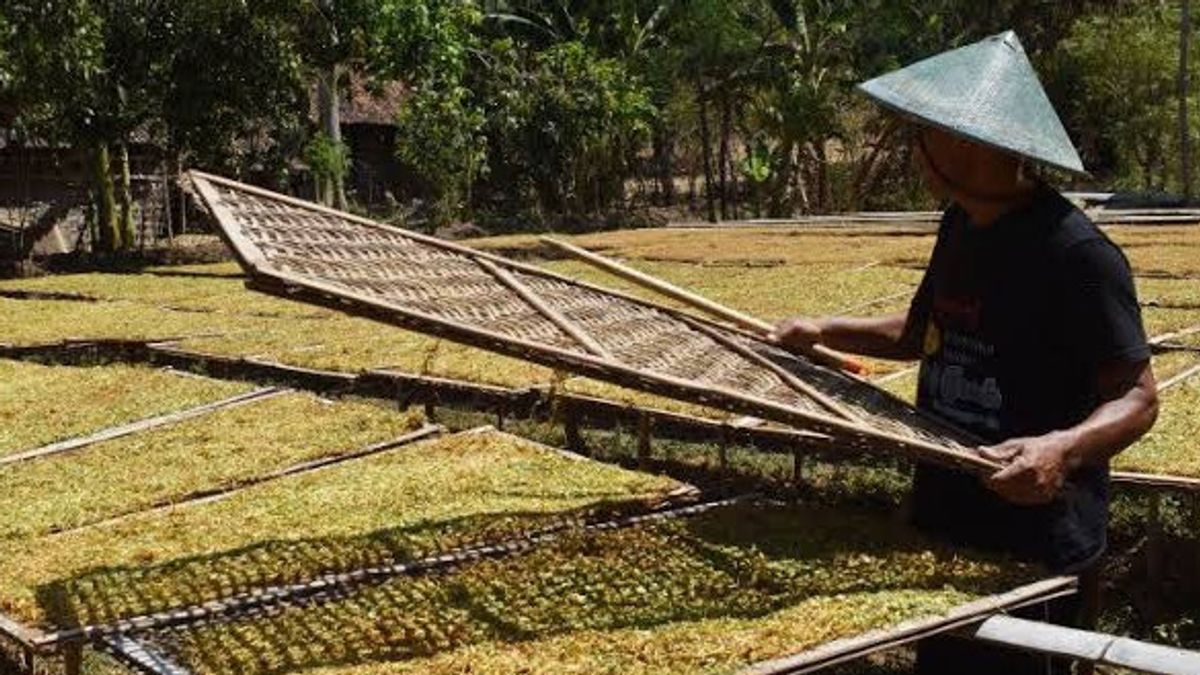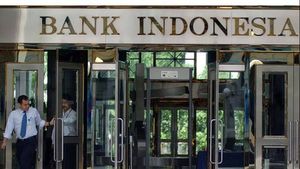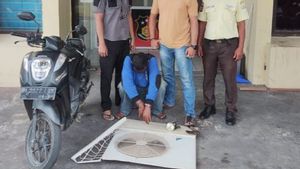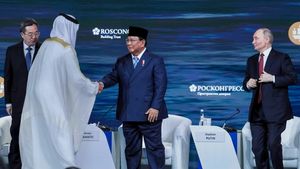JAKARTA - In recent months, a number of tobacco ecosystems have rejected the plan to increase tobacco excise (CHT) in 2023. Referring to the 2023 State Budget Law document, the government will increase excise by IDR 245.4 trillion.
Director of the Center for Economic Policy Research, Faculty of Economics and Business, Universitas Brawijaya (PPKE FEB-UB), Prof. Candra Fajri Ananda said, based on the results of a study conducted by the Center for Economic Research and Policy (PPKE FEB UB) in 2022, recommending that the government needs to consider various sides involved in the policy of increasing excise rates and cigarette prices in Indonesia. Among them are the government needs to pay attention to the side of the workforce, acceptance of CHT, health, illegal cigarettes, industry, and agriculture.
According to Prof. Candra, the results of the study entitled 'IHT Policy Balance Analysis in Indonesia' emphasized that the sustainability of the legal tobacco products industry (IHT) is an important part in considering excise policies in Indonesia to maintain IHT sustainability in order to encourage job opportunities and reduce unemployment in Indonesia.
This needs to be done considering that the indicator of the prevalence rate for early smoking has been achieved at the RPJMN which targets a decrease of 8.7 percent. In its development, the percentage of people smoking early age (10-18 years) has exceeded the government's target of 7.2 percent (2013) to 3.8 percent (2020).
"The results of the study show that the price increase is too high will threaten IHT continuity which has proven to have decreased the number of cigarette manufacturers, especially class 1. This is because class 1 has the largest level of sensitivity in the event of a price change. The increase in cigarette prices in groups 2 and 3 contributed greatly to the increase in the circulation of illegal cigarettes," said Prof. Candra in a written statement, Tuesday, October 11.
Referring to the results of the study, Prof. Candra said, in general the increase in cigarette prices will have a negative impact on IHT's sustainability and growth in CHT acceptance. The price increase directly affects the increase in the number of illegal cigarette requests.
"The continued increase in cigarette prices will have an impact on increasing the circulation of illegal cigarettes and IHT sustainability, which in turn can also increase the negative impact on the health of cigarette consumers and have the potential to reduce state revenue," he explained.
Therefore, continued Prof. Candra, the increase in cigarette prices is not an effective step to control cigarette consumption. The reason is, the impact of the increase in cigarette prices on increasing the circulation of illegal cigarettes and the decline in cigarette factories is greater than the decline in the prevalence rate for smoking.
"Currently, the government needs to hold back the increase in cigarette prices to maintain the balance of other pillars involved in the IHT," said Prof. Candra.
Director of the Beverage Industry, Tobacco Products and Smuggling Materials (Mintregar) of the Ministry of Industry, Edy Sutopo suggested that there be no increase in tobacco excise in 2023.
Even if it is increased, his party proposes the figure is as high as inflation. The reason is, this excise increase cannot be followed automatically by price increases. There must be an ongoing leg.
"If there is no pause, then this will erode the margin or maybe it will have a negative impact on the continuity of the IHT," he said.
According to Edy Sutopo, in the last 3 years, CHT has continued to increase. In 2020, it will increase by 23 percent, in 2021 it will increase by 12 percent, and in 2022 it will be 12 percent. Therefore, various policies towards excise need to be careful, one of the impacts will encourage an increase in illegal cigarettes.
"IHT is one of the pillars of the national economy, in addition to small and medium industries and the food and beverage industry. IHT has also been proven to be facing various economic crises, including during the ongoing Covid-19 pandemic," he explained.
Edy Sutopo added that Indonesia currently still needs IHT's contribution. This means that a precautionary attitude is needed in policymaking. Strict policies towards IHT have the potential to kill the continuity of the IHT.
On the other hand, by tightening this policy, smokers will not stop. What does that mean? If we do not fill the needs of cigarettes in the country, it will be filled with imported products and illegal products.
A balanced policy that pays attention to all aspects of fair policies against IHT is very necessary. We are very supportive of the distribution of the IHT roadmap commanded by Mr. Atong Soekirman (Kemenko Perekonomian). This roadmap can provide a legal umbrella for future business certainty," he explained.
Member of Commission XI DPR RI, Mukhamad Misbakhun, encouraged the government to immediately add alternative excisable goods (BKC) as an effort to encourage an increase in state revenues, considering that the increase in cigarette excise rates has reached an optimum point in encouraging revenue. According to him, excise revenues in Indonesia so far have relied on only 3 BKC objects, namely CHT, MEA, MMEA. Why doesn't the state think about other substantial things?
"We encourage multi-stakeholders to consolidate shared strength for the benefit of the country which is very fundamental, namely very large state revenues," he asserted.
This Golkar Party politician reminded state policy makers not to be coopted by global agendas that want to incorporate the continuity of the tobacco ecosystem which has a strategic role for the state, such as the push for access to the Framework Convention on Tobacco Control (FCTC), simplification (simplification) of excise rates, and much more.
"The process of hijacking such a state policy must be straightened out," he said.
Meanwhile, the Chancellor of Jenderal Achmad Yani University (Unjani), Prof. Hikmahanto Juwana reminded the threats that will be faced if the government is not careful in protecting the continuity of the IHT. First, threats that come from within the country. For example, the rise of illegal cigarettes, the smuggling of cigarettes, and so on. Second, threats that come from abroad.
They want to take the market share in Indonesia. In Indonesia, the market share is extraordinary and of course it is something sexy. It is very possible that there will be disturbances from abroad. This is what we need to be aware of," explained Prof. Hikmahanto.
Prof. Hikmianto, who is the Professor of International Law at the University of Indonesia, reminded that the government is able to formulate a policy against IHT whose spirit is independent. He said that the revision of PP No. 109 of 2012, which is currently still being discussed by related ministries/agencies, poses a threat to the tobacco ecosystem. In fact, the existence of PP 109/2012 already accommodates many agreements between countries related to tobacco products.
Through international agreements, he continued, the independence/ilability of our country can be dwarfed, because it follows what the international agreement stipulates.
Prof. Hikmianto also stated that Indonesia was right not to follow the FCTC international agreement by sticking to its independence.
I don't want Indonesia, which is a large market share that utilizes IHT, depending on other countries and our IHT, to be destroyed. Therefore, all interests must be seen together, and hopefully the government as a regulator can make fair policies for all," he concluded.
The English, Chinese, Japanese, Arabic, and French versions are automatically generated by the AI. So there may still be inaccuracies in translating, please always see Indonesian as our main language. (system supported by DigitalSiber.id)









